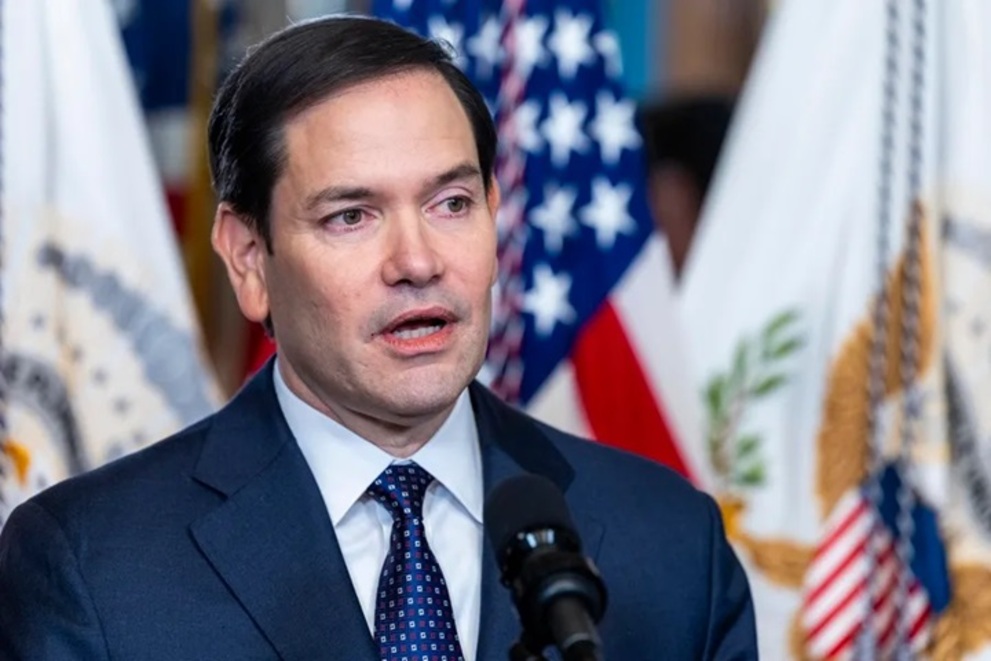Argentina Visa Surprise Spotlights West Wing Choreography and Growing Pains

A celebratory announcement in Buenos Aires—hinting at Argentina’s return to visa-free U.S. travel—landed like a thunderclap in Washington. Homeland Security’s Kristi Noem hailed the milestone; Marco Rubio, blindsided, fired back through a West Wing memo designed to curb freelancing diplomacy.
The surprise in Buenos Aires
On July 28, Homeland Security Secretary Kristi Noem stood beside Argentine Foreign Minister Gerardo Werthein and Security Minister Patricia Bullrich to sign a “statement of intent.” She praised President Javier Milei’s government, citing Argentina’s low overstay rates and growing travel ties, framing it all as a new security partnership.
For Buenos Aires, the symbolism was rich. After two decades outside the Visa Waiver Program, Argentina was promised a path—conditional and arduous, but a path nonetheless—toward visa-free U.S. entry.
Back in Washington, the mood was very different. Rubio—who serves as national security director and secretary of state in the administration’s streamlined hierarchy—had not been looped in. Five sources told Axios he was “blindsided” and annoyed, not at the substance but at the protocol breach. Normally, the National Security Council quarterbacked every step. Instead, a Cabinet secretary had announced a diplomatic milestone without clearing the West Wing’s choreography. In an administration that prides itself on breakneck speed, the gap was glaring.
A memo meant to slow a sprint
The fallout was quick. On August 8, Rubio and Chief of Staff Susie Wiles issued a memo to the president’s top team, restating with sharper edges a rule once taken for granted: all foreign engagements must clear the NSC first.
“No commitments or statements binding the United States may be made without prior NSC approval,” the memo read. Press secretary Karoline Leavitt insisted it was not aimed at anyone in particular, but the timing made the target obvious.
Defenders called it discipline, pointing to six peace deals and major trade agreements as proof that the streamlined model works when everyone stays in sync. But the Argentina episode revealed the tension built into Trump’s foreign policy: a Cabinet moving at the speed of social media and a West Wing desperate to keep message, brand, and commitments aligned.
In this case, Axios reported, the NSC had partial awareness of Noem’s Argentina trip—but the signal never reached Rubio’s desk. With a slimmed-down NSC built for agility rather than deliberation, the guardrails that normally prevent surprises had been intentionally weakened. The memo was an attempt to rebuild those rails without breaking the president’s velocity.
The Lewandowski question shadows DHS
The Buenos Aires surprise also intersected with another storyline: the unusual role of Corey Lewandowski, Trump’s longtime confidant, now serving as a “special government employee” at DHS.
SGEs are capped at 130 workdays a year, but Axios reported suspicions Lewandowski has undercounted his time. Sources alleged he sometimes enters DHS buildings alongside others to avoid badge swipes and uses private phones to minimize digital trails. White House officials insisted his hours are tracked by career staff, but admitted his work is “being watched now.”
The optics matter. Lewandowski often travels with Noem, including two recent multi-country South America trips, raising questions about influence and process. Trump himself blocked Noem from naming him her formal chief of staff, steering him into the SGE role instead. Against that backdrop, the off-script tango in Buenos Aires felt less like a one-off and more like a symptom of blurred roles and loosened lines of authority.

EFE@SHAWN THEW
Stakes for Argentina—and a White House that hates surprises
Lost amid the intrigue is the substantive prize. Reentering the Visa Waiver Program would be a significant win for Milei’s government and for U.S.–Argentina ties. Argentina was dropped in 2002 during a financial collapse; rejoining requires years of benchmarks on security, data-sharing, and counterterrorism cooperation.
Noem’s statement signaled DHS support for starting that process. But nothing changes overnight. The road back is long, technical, and conditional. That is why process matters. Allies and adversaries alike watch closely who speaks for the United States—and on what authority.
In this case, the after-action was swift. The NSC memo reasserted control. White House counsel kept auditing Lewandowski’s hours. Rubio and Noem smoothed their working ties. Yet the episode laid bare the governing dilemma: how to run diplomacy at “breakneck speed” without letting Cabinet secretaries freelance foreign policy.
Also Read: South America Patrols Escalate as Destroyers Test Diplomacy and Deterrence
The answer will be measured in the next surprise—or the lack of one. Argentina’s visa waiver bid is now a years-long project, requiring patient, often invisible progress. Whether that process proceeds without drama depends on the West Wing’s choreography holding together. For now, one truth from Axios reporting is clear: in a presidency that prizes speed, the NSC intends to keep both hands on the wheel.




